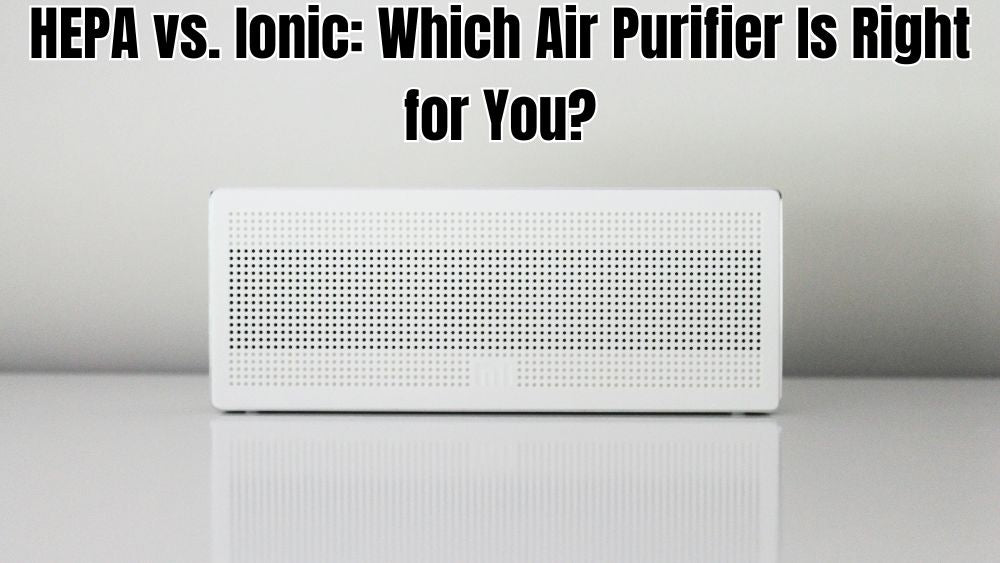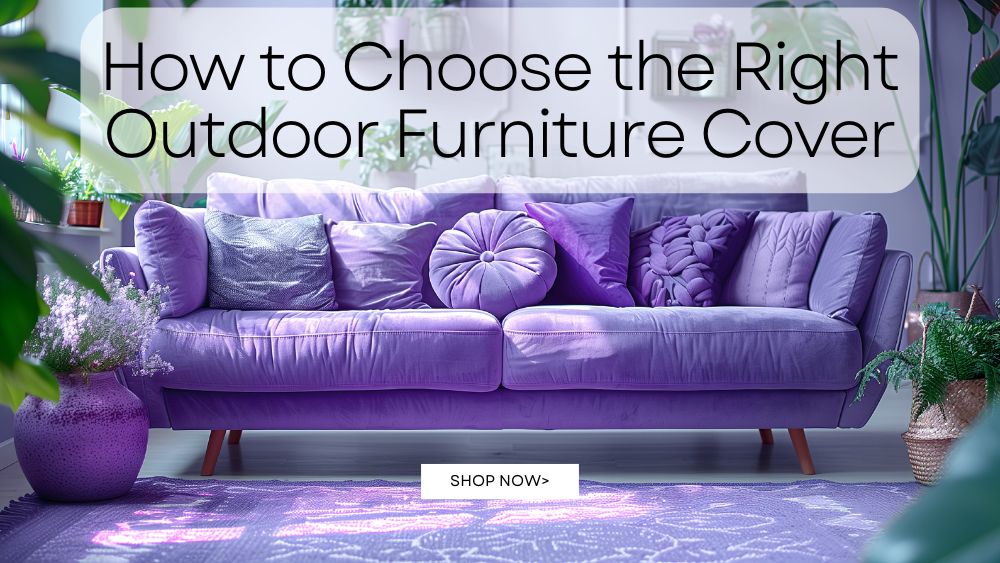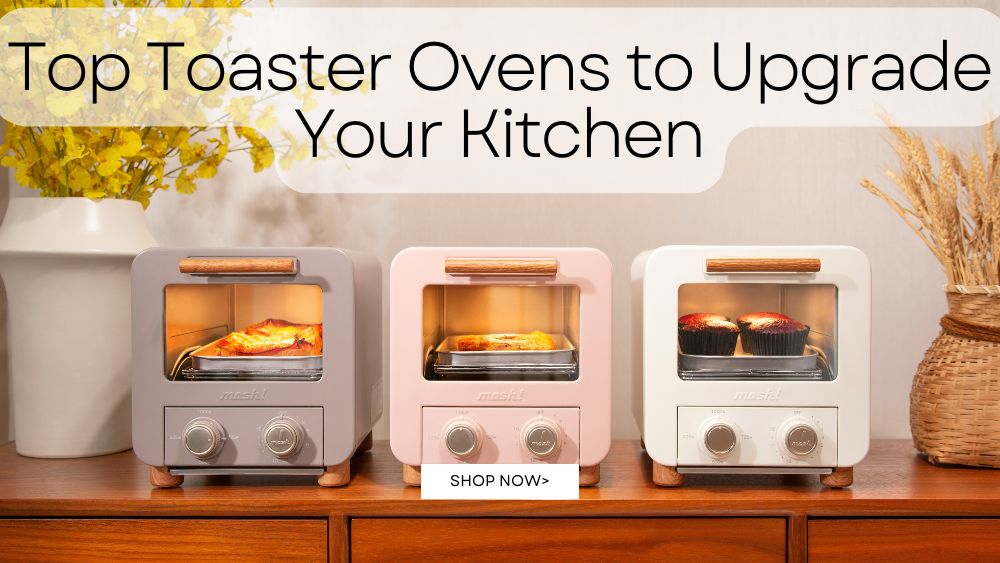When it comes to breathing cleaner air indoors, not all air purifiers are created equal. You’ve probably seen the debate—HEPA vs. Ionic air purifiers—but what’s the real difference? Which one suits your needs better? Whether you suffer from allergies, want to eliminate odors, or are looking for long-term indoor air quality, choosing the right purifier is essential.
In this guide, we’ll break down the difference between HEPA and ionic air purifiers, compare their pros and cons, and help you find the best type of air purifier for home use in 2025.
What is a HEPA Air Purifier?
HEPA stands for High-Efficiency Particulate Air. These purifiers use a dense, mechanical filter to capture tiny particles like dust, pollen, pet dander, mold spores, and even some bacteria.
A true HEPA air purifier benefits you by trapping 99.97% of airborne particles as small as 0.3 microns. That’s microscopic.
If you're looking for an effective filter-based option, the Shark HP102 Air Purifier covers up to 500 sq. ft. and offers multiple fan speeds—ideal for bedrooms, offices, and small living spaces.
What is an Ionic Air Purifier?
Ionic purifiers, also known as ionizers, work by releasing negatively charged ions into the air. These ions attach to particles, causing them to fall onto surfaces or get caught by a collector plate.
They’re silent, filterless, and low-maintenance. However, they don’t trap particles as effectively as HEPA filters do.
One standout is the VEVOR Ozone Generator Ionizer, which is powerful enough for commercial use. It’s especially useful for removing odors in larger rooms or industrial settings.
HEPA vs Ionic Air Purifier: Head-to-Head
Let’s break it down. Here’s a quick air purifier comparison 2025 chart of core differences:
| Feature | HEPA Filter | Ionic Purifier |
|---|---|---|
| Particle Capture | 99.97% (0.3 microns) | Moderate |
| Allergen Removal | Excellent | Fair |
| Odor Elimination | Needs carbon pre-filter | Very Good (via ionization/ozone) |
| Noise Level | Moderate | Very quiet or silent |
| Maintenance | Regular filter replacement | Minimal |
| Ozone Emission | None | Some models produce ozone |
| Cost Over Time | Higher due to filter changes | Lower (few parts to replace) |
Ionic Air Purifier Pros and Cons
Pros:
-
Low maintenance
-
Quiet operation
-
Great at neutralizing odors
-
Compact and lightweight
Cons:
-
Less effective on allergens
-
May emit ozone (harmful in high doses)
-
Particles can settle on furniture instead of being removed
The Mini Ionic 3-in-1 Composite Air Purifier bridges this gap by combining ionic and HEPA-style filtration for versatile cleaning.
HEPA Air Purifier Benefits
-
Top-tier particle removal
-
Safe for asthma and allergy sufferers
-
Backed by health professionals
-
Great for air purifiers for dust and allergens: HEPA vs ionic?—HEPA wins!
If you suffer from asthma, the VEVOR H13 HEPA Smart Air Purifier offers hospital-grade filtration. It's one of the top-rated HEPA and ionic air purifiers reviewed for those needing cleaner air fast.
Which Air Purifier is Better: HEPA or Ionic?
It depends on your specific needs.
-
For allergies or asthma: HEPA is your best bet. It captures pollen, mold, and pet dander with unmatched precision.
-
For odors, smoke, or VOCs: Ionic can be useful—especially ozone-based models like the VEVOR Ionizer.
-
For whole-home solutions: Check out in-duct purifiers like the VEVOR HVAC Whole-House Air Purifier.
If you're asking, "Should I choose a HEPA or ionic air purifier?", think about your home’s layout, your health needs, and how much maintenance you’re okay with.
Best Air Purifiers for Different Needs
-
Best for Bedrooms: Shark HP102 – Quiet and compact
-
Best for Pet Odors: VEVOR Ozone Generator
-
Best for Offices: Mini 3-in-1 Air Purifier – Small footprint, dual tech
-
Best for HVAC Systems: In-Duct Purifier – Clean air flowing through your vents
HEPA vs Ionizer for Allergies
If allergies are ruining your day, HEPA air purifiers are the superior choice. Their dense filter traps allergens before you even breathe them in. Unlike ionizers, they don’t just settle particles—they remove them from circulation entirely.
For a portable solution with high performance, try the VEVOR H13 HEPA. It’s efficient, smart, and ideal for allergy-prone homes.
Types of Air Purifiers Explained
-
HEPA Filters – Great for allergens
-
Ionic Purifiers – Great for odors
-
Ozone Generators – Target strong smells (use with caution)
-
UV-C Purifiers – Kill germs (often paired with HEPA)
-
Carbon Filters – Absorb chemicals and smells
If you’re exploring air cleaner technology comparison, many purifiers combine two or more of these systems for better results.
How HEPA Filters Compare to Ionic Purifiers
Still not sure? Here’s the short version:
-
HEPA = particle destroyer. Ideal for homes with pets, allergies, or kids.
-
Ionic = odor neutralizer. Best for removing smoke, mildew, or chemical smells.
-
Want both? Go hybrid. The Mini Ionic 3-in-1 offers you the best of both worlds in one compact design.
HEPA or Ionic—Which Should You Choose?
There’s no universal answer. Choosing which air purifier is better: HEPA or ionic depends on what you want to remove from your air.
-
Want cleaner lungs and fewer allergy attacks? Go with HEPA.
-
Want less odor and minimal upkeep? Try ionic.
-
Need both? Look for combination units that offer layered protection.
For a complete look at available purifiers, browse TotalFindz’s lineup—from compact HEPA units to heavy-duty ionizers and in-duct purifiers.











